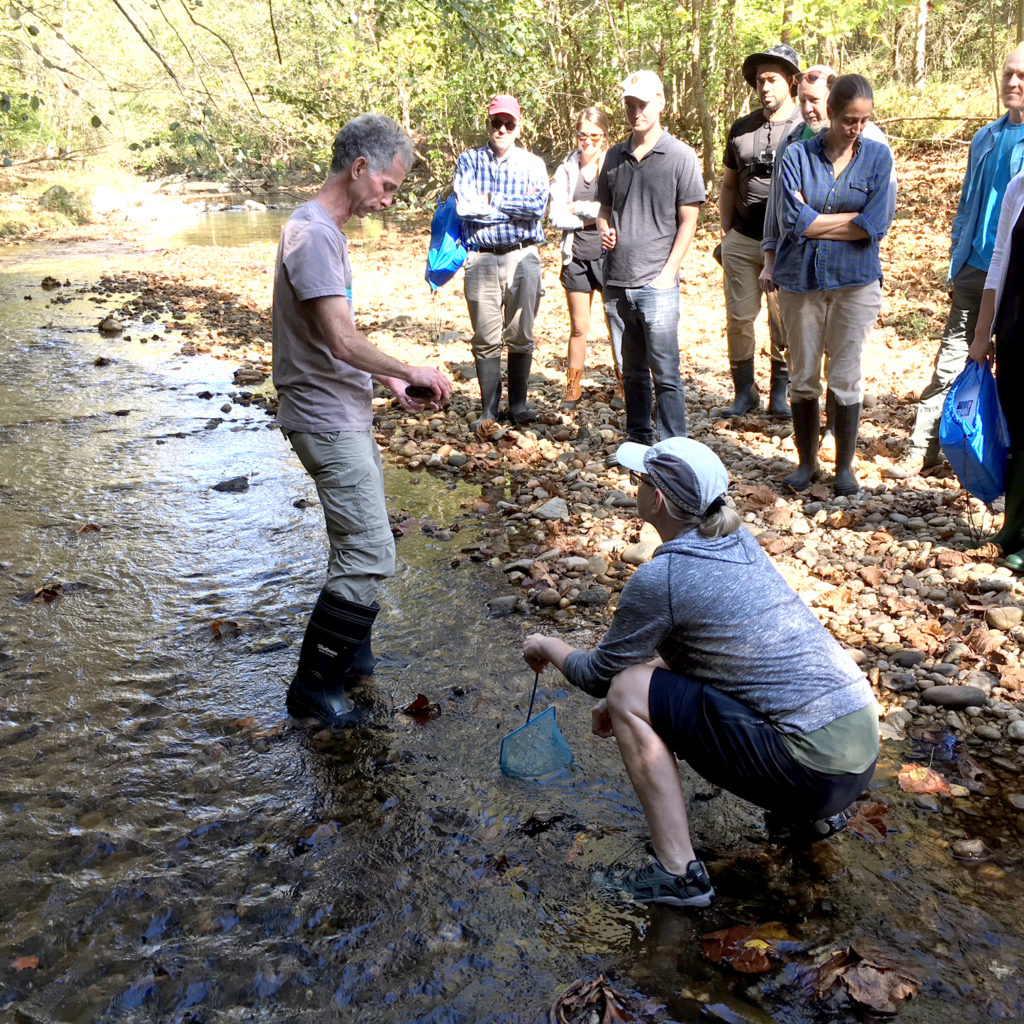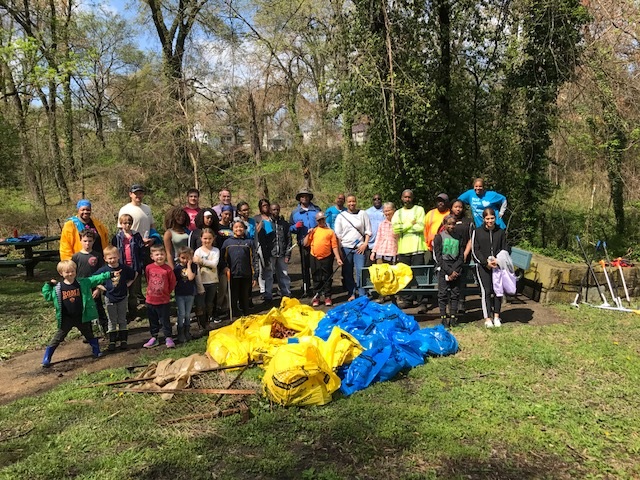By Raihanata Barry and Thelma D. Jones

learn about macro invertebrates; Courtesy of Anacostia Watershed Society
On Nov. 20, 2019, the Thelma D. Jones Breast Cancer Fund (TDJBCF) hosted its Annual Thanksgiving Celebration at St. Augustine’s Episcopal Church in SW, focusing on the topic of “Breast Cancer Survivors with Disabilities.” Mamie W. Mallory, TDJBCF Board Chair, welcomed celebrants and provided context to the discussion by sharing her disability of being legally blind and her advocacy work with the disability community.
TDJBCF founder Thelma D. Jones shared a statement from Sheri Denkensohn-Trott, a C-4 quadriplegic and thriving breast cancer champion who was unable to attend the meeting. Sheri is also a team leader for Undaunted Determination, American Cancer Society, Making Strides Against Breast Cancer. Her statement spoke volumes about some of the challenges that breast cancer survivors with disabilities face – namely, the availability of more accessible mammography machines, such as Giotto. These machines come directly to a patient with a disability (like a dentist office chair), as opposed to a traditional mammography machine that only moves up and down. Sheri also emphasized the importance of knowing that you are entitled to high-quality medical care with respect to any disability, citing the example that pap smears should be done on accessible, functioning exam tables as opposed to in a wheelchair.
Back by popular demand, Kimberly Beer, Director of Public Policy, Christopher and Dana Reeve Foundation, greeted the group and shared information on the foundation’s focus on increasing awareness about paralysis; increasing federal funding for the Paralysis Resource Center (PRC); and ensuring access to care for those impacted by paralysis. While fielding questions, Beer surprised the audience and indicated that, “Next year, I am going to invite Alexandra Reeve Givens, Christopher’s daughter, as I believe she would enjoy the opportunity to speak to the group.” That’s the legendary Christopher Reeve who played Superman in the late 70’s and 80’s. In 1995, Reeve became paralyzed from the neck down in a horse-riding accident. He founded the Christopher Reeve Paralysis Foundation in 1998 to promote research on spinal cord injuries. Reeve died of cardiac arrest in 2004.
Also back by popular demand, Regina Blye, a gun violence survivor who is paralyzed, served as an exceptional moderator for the panel discussion. Blye targets public policy reform aimed at improving the quality of life for people with disabilities by removing barriers in broad sectors of our society. As a former member of the United States Access Board, Blye was responsible for the development of accessibility guidelines and standards for the American with Disabilities Act (ADA) and the Architectural Barriers Act (ABA). Her experience and background provided her with invaluable insight into the lives of the panelists, enabling her to moderate the panel discussion in a thought-provoking manner that engaged both the panelists and the audience. The panelists – all breast cancer champions – included Linda C. Brown, Jourgette Reid-Sillah, and Nicole Rogers.
Brown shared her experience as an advocate and breast cancer survivor and as the primary caretaker for her 27-year-old daughter with disabilities since birth. She explained that while the biggest challenge was having the strength to remain strong as life became more intense, breast cancer inspired her to create an action plan for her child. She also shared how the breast cancer journey motivated her to be an advocate for people with disabilities and prompted her to join organizations in the metropolitan area that work towards disability rights.
Jourgette Reid-Sillah shared her challenge in the context of being a working woman for a local major hotel. She was diagnosed with her disability, then subsequently learned the unfortunate news about her breast cancer diagnosis. Reid-Sillah struggled with getting to doctor appointments as her disability restricted her from walking and resulted in the need to use a wheelchair due to arthritis in her legs and back, which affected her mobility. Her lack of mobility deprived her of one of her greatest joys – cooking – as she was no longer able to stand. Her breast cancer journey and disability inspired her to not only be an advocate but also a thriving champion.

2019 Earth Day Cleanup; Courtesy of Anacostia Watershed Society
Nicole Rogers, diagnosed at age 30 with triple negative breast cancer, was the youngest of the panelists. She experienced numerous surgeries that contributed to her disability. Her breast cancer journey and disability inspired and impelled an agenda for advocacy. Rogers felt that hospital staff would not listen to her concerns or take her seriously because of her age at the time of diagnosis. She expressed the importance of using her voice to advise the hospital staff how she was feeling, as the ability to use her voice was monumental since young champions are often overlooked.
The evening was filled with gratitude and thankfulness along with great food and meaningful conversation. It was clear that many of the thriving breast cancer champions characterized breast cancer as one of the best things that happened to them. The panelists explained that they became better advocates and found a greater purpose in life from their journey. The road from diagnosis to survivorship reminded both panelists and the audience that they have voices, and those voices can improve their lives and the lives of others. Jones reminded the audience that advocacy would be the topic of discussion in January 2020 and encouraged them to be a part of the celebratory New Year’s meeting.
The TDJBCF support group meetings are held monthly every third Wednesday, at 6 p.m. at St. Augustine’s Episcopal Church, unless otherwise specified. For more information on the TDJBCF, visit www.tdjbreastcancerfund.org or call email thelma@tdjbreastcancerfund.org.
Raihanata Barry, a recent graduate of SUNY-Albany, is a junior ambassador for the TDJBCF.

